1. Step 5
1.1. Formulate learning objectives
1.1.1. understanding CNS development
1.1.2. spinal bifida (mylomeningiocele)
1.1.2.1. cause
1.1.2.2. manifestations
1.1.2.3. complications (hydrocephalus?)
1.1.3. epilepsy
1.1.3.1. does medications completly prevent seizures?
1.1.3.2. effects on pregnancy
1.1.3.3. effects of epilepsy drugs on pregnancy
1.1.4. CSF circulation physiology and hyrocephalus
1.2. 10 minutes
2. Step 4
2.1. Hypothesis organization (tentative solution)
2.1.1. mylomeningiocele
2.1.1.1. innate from child devolopment
2.1.1.1.1. idiopathic
2.1.1.1.2. genetic
2.1.1.2. abnormality in pregnancy
2.1.1.2.1. drugs
2.1.1.2.2. trauma
2.1.1.2.3. nutrition
2.1.1.3. abnormality in delivery
2.1.1.3.1. epilpsy causing premature birth?
2.1.2. epilepsy
2.1.2.1. shes concering over the child rather her self
2.1.2.2. medications not controlling (receptor down regulation?) the seizure or are not working
2.2. 20 minutes
3. Step 1
3.1. Identify terms and cues
3.2. New terms
3.2.1. myelomeningocele
3.2.1.1. meninges herniation (congenital)
3.2.2. hydrocephalus
3.2.2.1. increased intracranial pressure (fluid in brain)
3.2.3. valporate
3.2.4. carbamazapine
3.3. cues
3.3.1. 6 w old boy
3.3.1.1. had a repair for mylomeningocele at 3 days of age
3.3.1.2. require monitoring for hydrocephalus
3.3.2. 26 yr old mother
3.3.2.1. has epilepsy
3.3.2.2. taking anticonvulsants medications
3.3.2.3. suspect seizure
3.3.3. both moved to a new area
3.4. 10 minutes
4. Step 2
4.1. Problem formulation (put it in a senates)
4.1.1. a 26 yr old epileptic mother with a self concern of having seizure came with her 6 w child on whom shes worried from hydrocephalus
4.2. 10 minutes
5. Step 3
5.1. Hypothesis generation (brainstorming)
5.1.1. mylomengiocele
5.1.1.1. trauma durining pregnancy
5.1.1.2. drug teratogenicty ?
5.1.1.3. genetic?
5.1.1.4. nutritional deficiency
5.1.1.5. pregnancy problem
5.1.2. hydrocephalus
5.1.2.1. surgery complication
5.1.2.2. infection
5.1.3. epilepsy
5.1.3.1. electrical imbalance that cause fast twitching of muscles which can lead to consequences like loss of consciousness
5.1.3.2. hyperexitation
